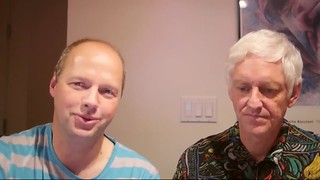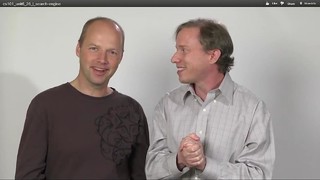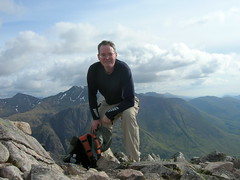
My current class is Probabilistic Graphical Models, it is fun and a bit challenging. The class started about a month ago, but I am already about one week behind. Daphne Koller is a great teacher, and has a vision to help provide quality education to the world, via Coursera
In December, 2011, I finished the online AI class “Introduction to Artificial Intelligence” taught by

Peter Norvig and Sebastian Thrun. It was tremendous.
In April, 2012 I finished CS 101 - Building a Search Engine, a free course offered by Udacity (It was free but not easy). I really learned a lot - and I did enjoy the final, it was a bit of a challenge for me. This was one of the first courses offered by Udacity.

The person on the right is David Evans, he was our teacher for this course; a Professor of Computer Science at the University of Virginia. On the left is Sebastian Thrun, who helped start Udacity. Sebastian is a Research Professor of Computer Science at Stanford University and a Google Fellow.
I have been quite impressed with what is available for online classes. The fact that anyone in the world can take a class and learn is quite amazing. My goal is to keep on learning. I really hope to learn more about the nature of consciousness and how sentient species came about.

